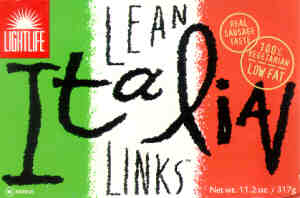 "THIS ISN'T A PARTICULARLY EASY WORKSLOT"
"THIS ISN'T A PARTICULARLY EASY WORKSLOT"
We began with the fruits of democracy from the previous meeting: snacks! We had blue corn and other freaky kinds of chips, mostly low-fat and low-sodium. As we crunched chips and sipped water, the chair gave the usual plea for more people to join the chair committee. "This isn't a particularly easy workslot," she added. "I didn't used to have to nap before it."
The coordinators reported that redesign of the current building's front end will be finished this summer, not waiting for the new building. Scanners and computerized registers are already being bought. The coordinators estimate that costs will be $100,000, less than the $140,000 appropriated by the GM, though some contracting costs are still fuzzy.
The almost-bought Building Next Door monopolized the Open Forum question period. The coordinators said that they had appointed a team to manage initial Building Next Door contract proposals. Ubercoordinator Joe Holtz said the team comprised three members and two staff, including himself. One of those team members repeatedly urged Joe in stage whispers to add that decision making would be on an equal-vote basis. Holtz finally, grudgingly did so, muttering that consensus was best and that voting was messy.
All this caused one member almost to explode like that guy in Scanners, and another to suggest scrapping the whole thing. The first demanded to know whether Joe was on the team as a volunteer or as a coop employee. "Are we paying you to do this, or is this in your off hours?" Joe replied -- through interruptions by Exploding Head -- that as a coop manager, all management decisions could fall in his domain. "Who appointed you to the committee?" challenged Exploding Head until he was shut up by the chair.
The other member asked, despite the overwhelmingly positive referendum and the two years of debate and planning for the Building Next Door, why we weren't instead buying a building three doors down. He'd helpfully just called the broker himself to confirm it was still available. Holtz replied that the location study committee (LSC) hadn't been interested in it since it wasn't even adjacent.
More heated discussion arose over whether there was a cap to the Building Next Door purchase price. Holtz said that the LSC had appointed two negotiators, and that it was not appropriate to discuss anything involving price. Loud, worried rephrasings of the question followed, with Holtz still keeping mum.
 The disciplinary committee then reported that one of its members was named
Fay Wray, and that in response to an appeal for feedback on their work,
the only respondent was one of its former members, a "disturbed, extremely
angry" crackpot who'd accused them of 32 violations and would probably
come to a future GM to inflict vague, rambling verbal attacks.
The disciplinary committee then reported that one of its members was named
Fay Wray, and that in response to an appeal for feedback on their work,
the only respondent was one of its former members, a "disturbed, extremely
angry" crackpot who'd accused them of 32 violations and would probably
come to a future GM to inflict vague, rambling verbal attacks.
The chilled audience then heard the peppier report of the marketing committee, which had decided that May 2 was the coop's birthday and that it would feature a sidewalk party with 1970s music, face painting, games, and vendors, but no balloons because of their environmental impact. Other promotional events would include coop author readings at Community Books and Barnes and Noble. Many members then protested our cooperating with such a "killer of other bookstores." The marketing representative replied that the coop authors' first choice had been Community Books -- but that all were pleased to be booked also at Barnes and Noble.
Finally we got to the agenda. The main item proposed to revamp the controversial Annual Meeting system of voting proxies for absent members. Coordinators collect such proxies from pro-staff members to ensure influence over the Annual Meeting's election of the board of directors. Such proxies are a new tactic, apparently not used before opposition members rose to the formerly rubber-stamping board.
The proposer criticized Joe Holtz for not voting hundreds of pro-staff proxies at one Annual Meeting, then voting them at the next one since the previous year's proxy holders had complained of disenfranchisement. The proposer suggested a new, Byzantine process to avoid "even the appearance of impropriety." Instead of empowering their favorite opposition or staff members to cast their votes carte blanche, absent members would have to send "directed" proxies specifying in advance what specific votes should be made. The new proxy would be the only kind permitted.
The coop treasurer promptly stood and waved letters from the coop's lawyer, declaring that the proposal illegally limited the rights of members who might use other proxies, and that as a member of the board of directors, he would have to vote against a General Meeting decision to approve it. The specter of overregulated proxies must be quite a threat to the coordinators, legality aside: it would be the first time a coordinator voted to veto a General Meeting decision, a parliamentary dirty trick invented by the coop opposition.
Vehement discussion followed. The proposer, not a seasoned speaker, bravely ducked brickbats thrown at her and between audience members. Although she gamely agreed to remove the clause that made it the only permitted proxy, that only sparked complaints that it restored the appearance of impropriety. Another coordinator said that so few members got to read the annual financial statement before the Annual Meeting that directed proxies would force members to vote on it in complete ignorance.
 Even Andy Kaufman stood to speak, babbling about the General
Meeting being unfair because it subverted the democratically elected board
of directors. (A canard. The underattended but directly democratic GMs
decide policy, and the democratically elected board of directors votes to
make such decisions legal under business law, making the board as
democratic as the federal Electoral College.) The chair asked him to
stick to the topic at hand. "What if I don't?" he whined. In a room
stunned to silence, he went on to complain that the relevancy of a
speaker's contribution should not be up to the opinion of the chair
committee. The audience then begged for him to shut up, and as others
spoke, he slipped unnoticed out of the meeting.
Even Andy Kaufman stood to speak, babbling about the General
Meeting being unfair because it subverted the democratically elected board
of directors. (A canard. The underattended but directly democratic GMs
decide policy, and the democratically elected board of directors votes to
make such decisions legal under business law, making the board as
democratic as the federal Electoral College.) The chair asked him to
stick to the topic at hand. "What if I don't?" he whined. In a room
stunned to silence, he went on to complain that the relevancy of a
speaker's contribution should not be up to the opinion of the chair
committee. The audience then begged for him to shut up, and as others
spoke, he slipped unnoticed out of the meeting.
When the vote was take it was 15 yeas, 28 nays, and 4 abstentions.
The next proposal asked that a quorum be required of the still ongoing referendum to accept or reject a coop mission statement. The proposing member said it would be unfair for a mission statement to apply to all members if it were voted on by fewer than half. He denied wanting to kill the mission statement, though he admitted that if he wanted to, he could always electioneer on the shopping floor.
A mission statement committee member protested that the proposal was out of order since the referendum had already begun. After more discussion, he then proposed a compromise, a friendly amendment to extend the voting past its deadline till half the coop had voted. "Unfriendly!" snapped the proposer. "Then you're showing your true intentions. Unfriendly, then," said the amender.
"This is illegal and irrelevant!" howled another member. "It's the duty of the chair to do something! I want you to end discussion!" "This is not an easy workslot!" shouted the chair, adding, "I don't go harassing you on your workslot!" The member kept protesting till the audience shushed him.
Finally we voted, though by now even I thought it was wrong to vote to warp a past decision. The referendum quorum proposal failed 10-30 with 6 abstentions, plus one member yelling that she was going to seek legal counsel.
We were out of time by then, and quite pissy. The General Meeting ended, and then began the board of directors meeting to confirm it, led by Joe Holtz. On the proxies vote, Holtz asked for a show of director hands "in favor of a proposal to create a proxy system." But the board doesn't vote on issues; it votes on the GM votes on issues. The entire room was incredulous, with even other coordinators asking, "Joe, what are you doing?" He was finally bullied into asking, more traditionally, who voted in favor of the "accepting the advice of the membership" on the topic: 4 yeas, 1 nay. All directors agreed to approve the decision rejecting the referendum quorum.
The chair then thanked the audience for being so cooperative. A member said she hoped that other coops would "enlighten us as to how other modalities are used in other parts of the country, amen, ah-women." Rebel director Paul Sheridan said he was glad George Orwell was kept alive by Holtz skillfully turning the proxy question around so the board of directors wouldn't have to vote no on it. But that makes no sense to me, as it was Holtz's senseless attempt to ask the board to vote on the issue, not on the GM vote on the issue, that would have meant a no vote. But a lot of this stuff makes no sense to me, and the meeting adjourned, and I left, senseless.
![]() Next dispatch.
Next dispatch.
![]() Previous dispatch.
Previous dispatch.
![]() Back to list of dispatches.
Back to list of dispatches.